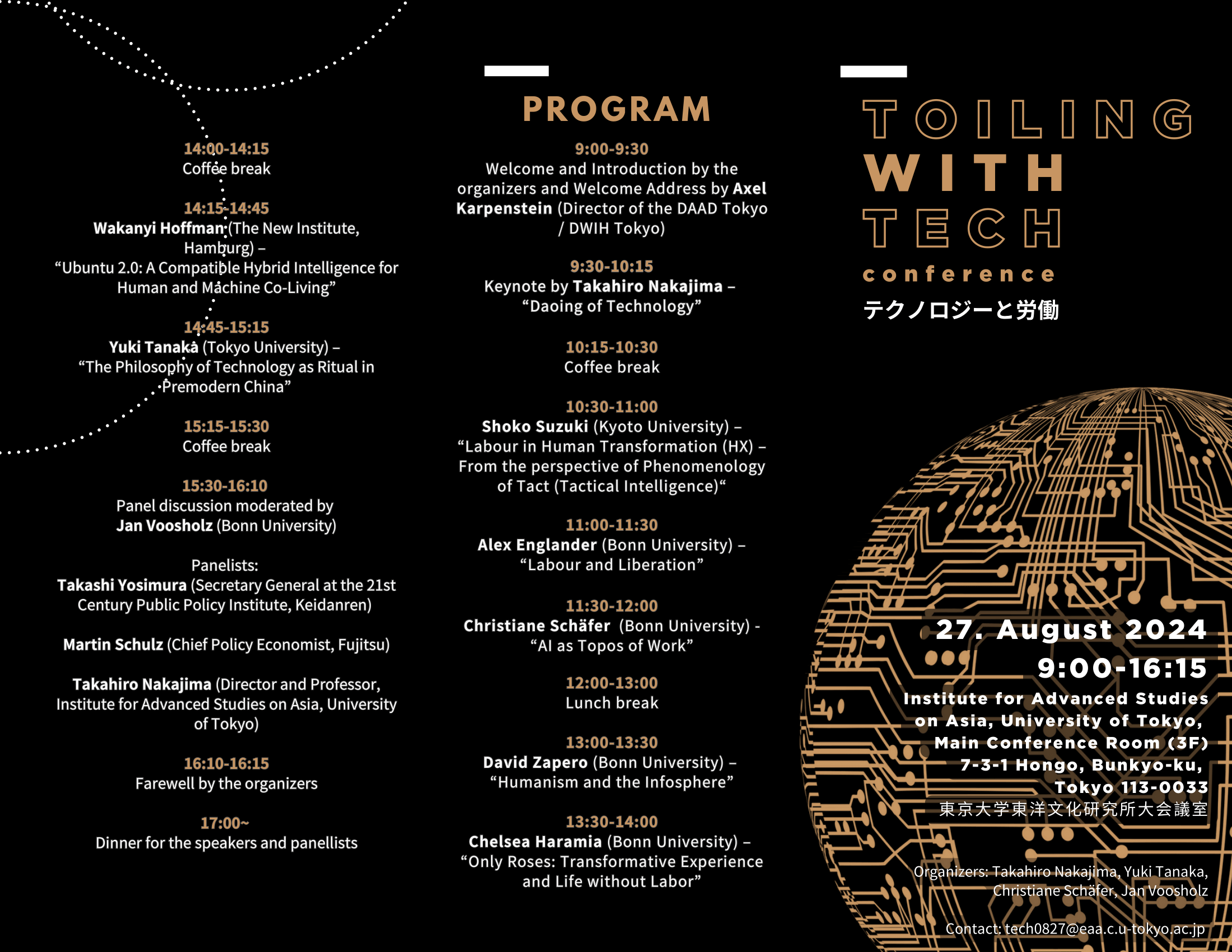Conference: Toiling with Tech. Human Labor, Robots and Technology in the 21. Century
Progress in automation, most recently the technological development and expansion of applications in robotics and machine learning, has long been accompanied by speculation about fundamental changes in the labor economy. Some even summon the spectre of the long-envisioned “end of work” (Rifkin 1995). With recent developments and the rise in interest in AI technologies, a host of related questions seem more relevant than ever (see the discussion sparked by, e.g., Saito’s Capital in the Anthropocene, 2020): Which new values could replace currently prevalent versions of work ethics? What does ethical economic behavior look like under today’s capitalist conditions? Will idleness be the end of democracy? Or will technological advances allow us to create a utopia of leisure?
These questions, posed in public discourse, as well as in business and academia, are already part of a tradition of future-oriented criticism concerning progressing automation (even though the repetitive nature of this discourse is often obfuscated). The range of answers to this iteration of questions so far seems limited, with the most prominent voices favouring either augmentation or the so-called humanistic approach. The former sees posthumanism or concepts of the cyborg as the most promising way to compete with super-efficient machines (e.g. N. Katherine Hayles, Nick Bostrom, Max Moore). The humanistic approach, by contrast, tries to tackle the same problems through the extension of the welfare state, e.g. by implementing a basic income and often limiting the use of technology (as advocated by, e.g. Erik Brynjolfsson, Widerquist, but also by voices outside academia, such as OpenAI CEO Sam Altman). Both strategies often over-generalize economic conditions, the role of the worker, and the potential of technologies in various contexts of application. In the framework of this event, our goal is to hone these perspectives, but also to explore alternatives.
What these options share is the conviction that work, which for so long has been both a decisive factor framing our lived experience as humans and an integral part of subject constitution and social integration, is irreversibly changing. To properly discuss how current and emerging technologies affect communal and individual futures of labor and work, we therefore need to reevaluate our conceptions of human co-becoming (Dōgen, Adam Smith, Nakajima …). Focusing on exemplary voices from different contexts, we aim to investigate the underlying notions of work and humanity in the current debate on digital technologies such as AI and robotics.
Organised by:
Takahiro Nakajima, Christiane Schäfer, Yuki Tanaka, Jan Voosholz
With support by the DWIH Tokyo and Stiftung Mercator
For registration, please click here.
Contact:
Mail: tech0827@eaa.c.u-tokyo.ac.jp
Christiane Schäfer, University of Bonn (Mail: c-schaefer@uni-bonn.de)
Jan Voosholz, University of Bonn (Mail: voosholz@uni-bonn.de)


